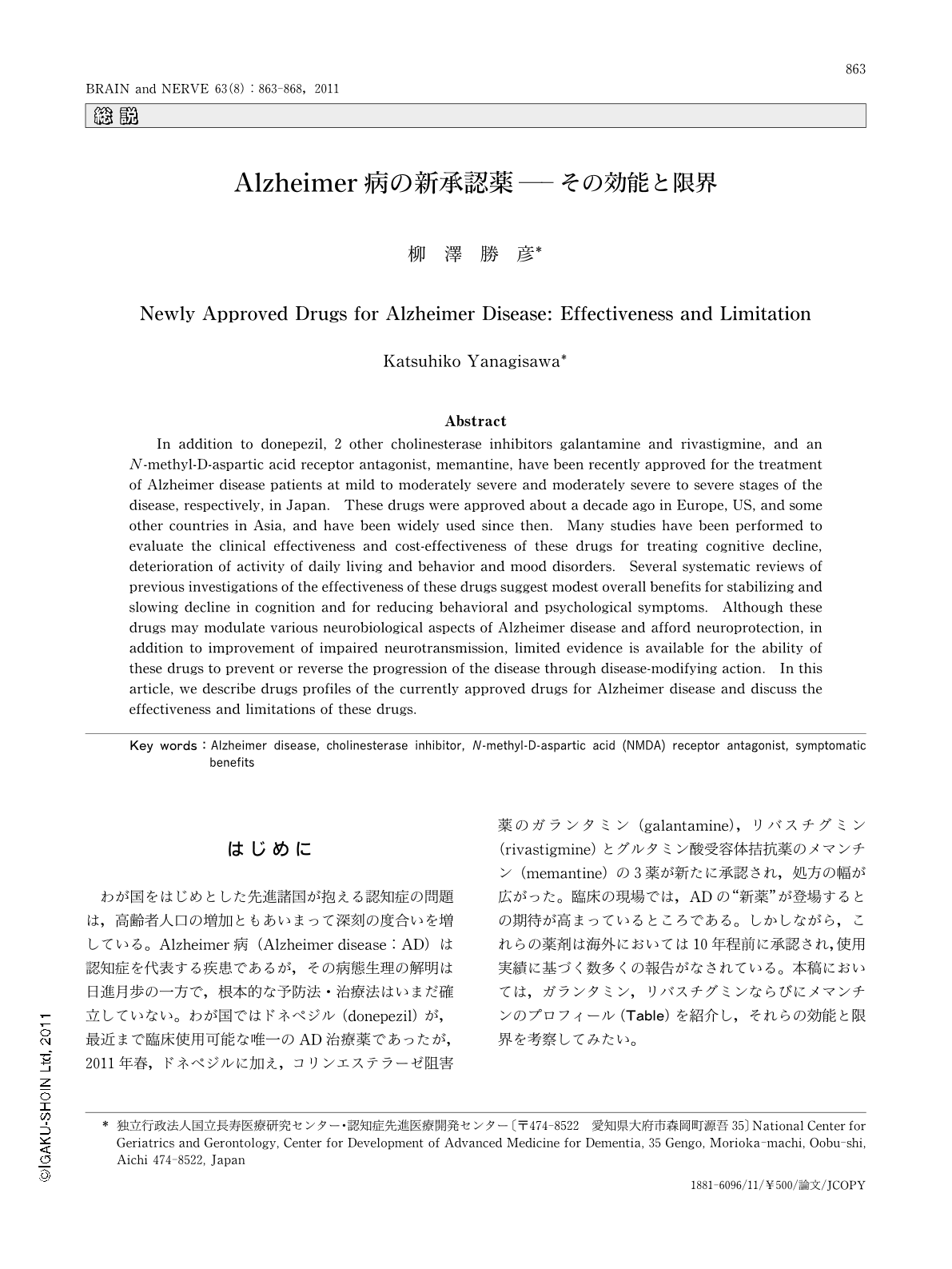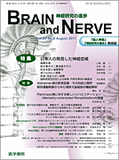Japanese
English
- 有料閲覧
- Abstract 文献概要
- 1ページ目 Look Inside
- 参考文献 Reference
はじめに
わが国をはじめとした先進諸国が抱える認知症の問題は,高齢者人口の増加ともあいまって深刻の度合いを増している。Alzheimer病(Alzheimer disease:AD)は認知症を代表する疾患であるが,その病態生理の解明は日進月歩の一方で,根本的な予防法・治療法はいまだ確立していない。わが国ではドネペジル(donepezil)が,最近まで臨床使用可能な唯一のAD治療薬であったが,2011年春,ドネペジルに加え,コリンエステラーゼ阻害薬のガランタミン(galantamine),リバスチグミン(rivastigmine)とグルタミン酸受容体拮抗薬のメマンチン(memantine)の3薬が新たに承認され,処方の幅が広がった。臨床の現場では,ADの“新薬”が登場するとの期待が高まっているところである。しかしながら,これらの薬剤は海外においては10年程前に承認され,使用実績に基づく数多くの報告がなされている。本稿においては,ガランタミン,リバスチグミンならびにメマンチンのプロフィール(Table)を紹介し,それらの効能と限界を考察してみたい。
Abstract
In addition to donepezil,2 other cholinesterase inhibitors galantamine and rivastigmine,and an N-methyl-D-aspartic acid receptor antagonist,memantine,have been recently approved for the treatment of Alzheimer disease patients at mild to moderately severe and moderately severe to severe stages of the disease,respectively,in Japan. These drugs were approved about a decade ago in Europe,US,and some other countries in Asia,and have been widely used since then. Many studies have been performed to evaluate the clinical effectiveness and cost-effectiveness of these drugs for treating cognitive decline,deterioration of activity of daily living and behavior and mood disorders. Several systematic reviews of previous investigations of the effectiveness of these drugs suggest modest overall benefits for stabilizing and slowing decline in cognition and for reducing behavioral and psychological symptoms. Although these drugs may modulate various neurobiological aspects of Alzheimer disease and afford neuroprotection,in addition to improvement of impaired neurotransmission,limited evidence is available for the ability of these drugs to prevent or reverse the progression of the disease through disease-modifying action. In this article,we describe drugs profiles of the currently approved drugs for Alzheimer disease and discuss the effectiveness and limitations of these drugs.

Copyright © 2011, Igaku-Shoin Ltd. All rights reserved.


